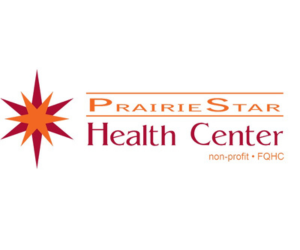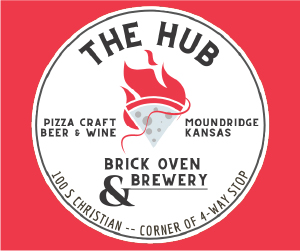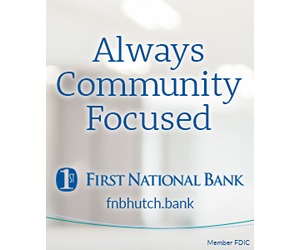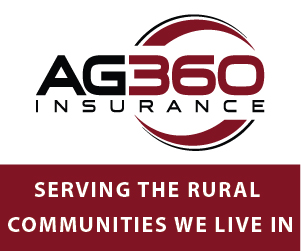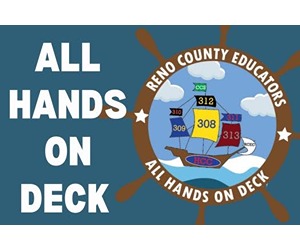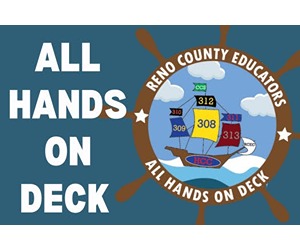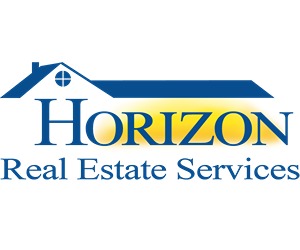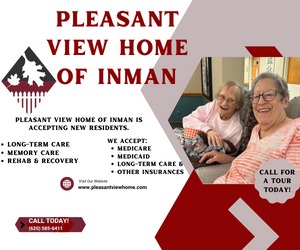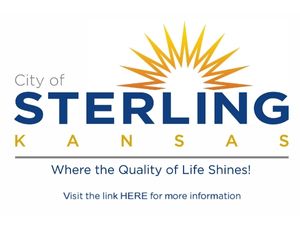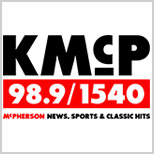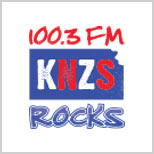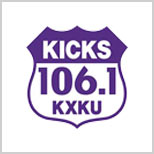By Brenna Eller
HUTCHINSON, Kan. — Benjamin Anderson, the new Hutchinson Regional Healthcare System Chief Executive Officer expressed that he and his family are excited to join the Hutchinson community and he is ready to listen to staff and Board members of HRHS and work together on solutions for the future of the healthcare system.
Anderson also shared three stories with an underlying theme of hope at the press conference Wednesday, Dec. 6.
Before introducing Anderson, Allen Fee, Chairman of the HRHS Board of Directors addressed the medical staff saying, “Today marks a new day of better communication, no doubt. Thank you for your efforts, past, present and future.”
Fee echoed his previous statement about Anderson from the Nov. 21 press release.
“It is very rare when opportunity, timing, talent, and fit come together, but it did,” Fee said. “I think we feel very fortunate, and I think people will feel that way too when we’re done with today.”
The permanent position of CEO of HRHS had been available since last November according to Fee.
“We had held off on an extensive search until August when we got an email from Benjamin Anderson,” Fee said.
Fee said that he and the HRHS Board liked that Anderson had history with rural Kansas. They also knew he would be making a change from his current position. The Board made it clear to Fee after meeting him that they didn’t want to lose him.
“I think you’re going to be impressed, not only today but in the future. There is a vision.” Fee said. “I think he is a very rare talent and in terms of communication style, very collaborative approach. I think he is going to be a fabulous leader for this health system.”
Anderson said hope is a very powerful thing and is something needed after the last 3-4 years.

Benjamin and his wife Kaila have four children: David (10), Naomi (10) Jonathan (9) and Maria (9).
Kaila is from Sabetha, Kan., and she has always loved her parents’ land. It was where she grew up according to Anderson.
While he was working 18-hour days during the pandemic at the State Hospital Association, Anderson and his family were staying at her parents’ house and he got to look out the window and watch their kids play on the very land that Kaila grew up on, where there were ziplines, a creek, fences they climbed on, and tree swings.
“As I was looking out, I began to imagine what it might have been like to be Kaila growing up in that same area,” Anderson said.
Anderson saw why Kaila’s childhood was so sacred to her and thought about what it would have been like to be her mom or grandmother in that same area in the country.
“We want our kids to be able to experience a life that is at least as good as when Kaila grew up, in northeast Kansas and that’s worth fighting for, and I also say that to say that we have our shadows,” Anderson said. “We have our challenges. Addiction, poverty, and healthcare access and education outfits; the challenges that go with that. The developing the next generational leaders. All of those things are things that are on our mind.”
Jobs and keeping the jobs, as well as food access, are also issues that Anderson brought up.
“Those things are challenges and it’s not easy, but that is what we are working toward,” Anderson said. “We’re trying to fight for that. Amidst this we have a healthcare worker burnout issue.”
Anderson reminded everyone with the message that healthcare workers are human too and he believes that there are ways that together they can come together to solve issues of worker whiplash and address them better than they have been in the past.
The second story Anderson told was about his son David, who he nicknamed “Captain America in Boots.”
David loves to build, eat, be outside, loves his family, likes to hike, is adventurous, courageous, and is fascinated by first responders. According to Anderson he is always asking them questions when he meets them, no matter what line of work they are in.
“He’s caring,” Anderson said. “Last year he helped deliver caffeine nectar to UPS workers for Christmas. He loves his siblings and his family.”
David’s favorite story has always been the story of David and Goliath.
“I’m not sure exactly why it’s his favorite, it could be that it’s because his name’s David, it could be that it’s about fighting in a war. He’s a little warrior,” Anderson said. “But I think after getting to know him after the last ten years, it’s because it’s about an undersized kid who shows up with a handful of rocks to a sword fight and wins.”
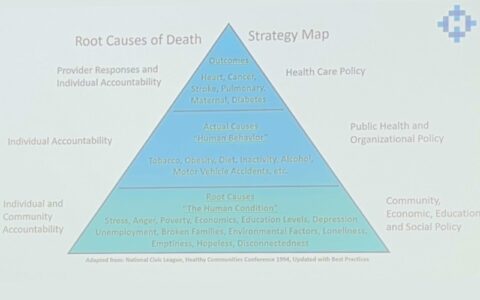
One night David asked, “Dad? Did I beat Goliath?” Anderson interpreted the question as, “Dad, could I beat Goliath?”
David was diagnosed with a form of epilepsy that would lead to 60 seizures a day, so he ended up meeting his Goliath in a way.
Specialized care for epilepsy didn’t exist where the Andersons lived, so they were flown out to Rochester, Minn., and had multiple tests done.
The systems they used there didn’t work for them and opened Anderson’s eyes to the downside of ethics in the healthcare system.
He used Sr. Mary Jean Ryan (FSM) as an example of what a healthcare system should be since he was just starting out as a CEO. He even talked to her on the phone.
She taught Anderson that systems heal, and systems harm. The job of a CEO is to help doctors and nurses help other people.
“The bottom line is you help caregivers help other people,” Anderson said. “You do that through developing systems that makes it easier for the caregiver to help other people. And that involves financial systems, strategic and operational stuff too.”
Anderson explained that it’s best to start with an easy thing, and that it isn’t okay to just stay with the existing structure if it isn’t working.
“Structural change is hard,” Anderson said. “I’ve worked with physicians for much of my career and have enjoyed working with physicians. I’ve found that when physicians, when nurses, healthcare workers, community members feel heard, honestly heard, inside we have the perspective to do that. We will see where this community can go when we see the full picture.”
A good starting place is to ask a patient, “How are you?” Instead of asking, “How did we do?”
The third story Anderson shared was about a dishwasher from Ashland Health Center named Joe Labelle about 15 years ago.
“I was brand new there,” Anderson said. “Joe LaBelle was sharing his story with me, telling me that his grandmother passed away from breast cancer and that she didn’t get a mammogram until stage four, and he felt like her death was avoidable had she been able to have a mammogram.”
He suggested having a basketball game to reach people in a language they would understand and given that the sport was invented in Kansas, he thought basketball would be perfect.
LaBelle called the state activities association to set up the game. They brought in big Kansas basketball players such as NCAA star Jackie Stiles of Claflin, Kan.
Anderson called Jackie’s Dad, who was a track coach at Claflin High School. Players from KU, K-State, Missouri, Missouri State, Texas, Oklahoma State, Uconn, Ohio State, and a bunch of other schools quickly joined in after.
KU and K-State got together and coached a cheer clinic for the little girls in the community to raise additional money for the cause.
Fox Sports broadcast the game live, coast-to-coast and it took a day to wire the gym according to Anderson.
The event raised over half a million dollars and the WEPAC Organization is still going today.
“That idea came from a 21-year-old dishwasher,” Anderson said. “I know 12 women personally whose cancer was caught because of those health screenings.”
Thinking about the future of Hutch Regional and Reno County, Anderson said the solutions people come up with may be what changes healthcare in the United States.
“The possibilities are endless,” Anderson said.
Anderson added that there’s no reason that the hospital can’t have the same positive reputation that the Prairie Dunes Country Club has from states away.
Anderson asked what would happen if everyone contributed and what that would look like.
“We are tying our wellbeing to the wellbeing of this community,” Anderson said. “There is so much good happening here and I’m privileged to be a part of it.”




















